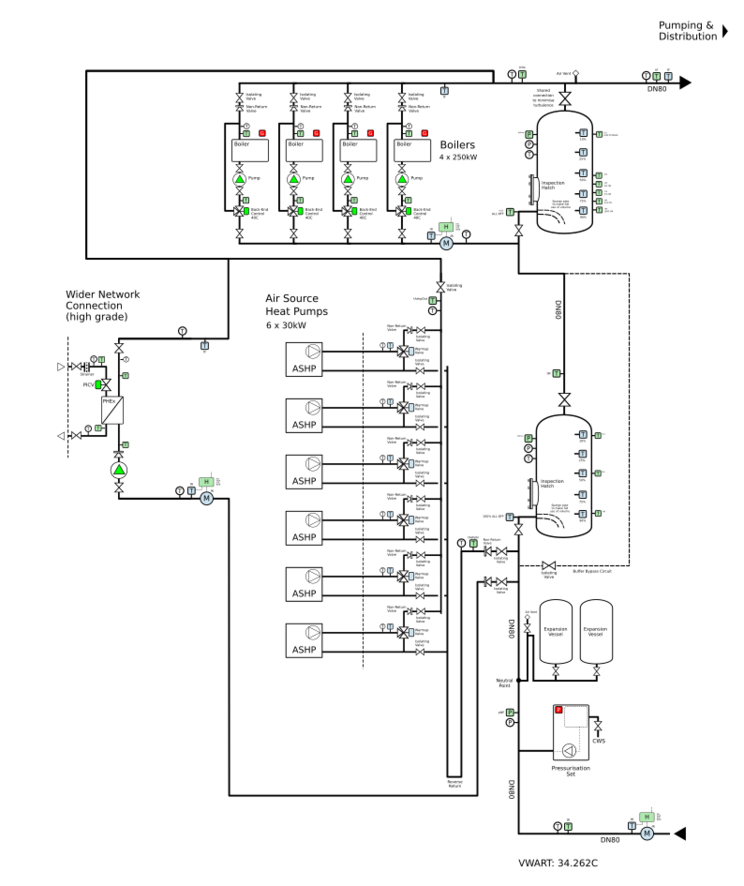Difference between revisions of "Buffer Store Control"
Jump to navigation
Jump to search
| Line 7: | Line 7: | ||
* Heat sources of lower priority will be exercised. | * Heat sources of lower priority will be exercised. | ||
* Modulation will be applied to heat sources where possible to match loads and minimise cycling. | * Modulation will be applied to heat sources where possible to match loads and minimise cycling. | ||
*Low load buffering mode to minimise cycling. | |||
* Timing functions can be applied. | * Timing functions can be applied. | ||
* Includes functions for override of non-critical loads, such as central heating, when store close to empty. | * Includes functions for override of non-critical loads, such as central heating, when store close to empty. | ||
| Line 12: | Line 13: | ||
* Includes functions for boiler loading valve and pump control (with DP switch or sensor). | * Includes functions for boiler loading valve and pump control (with DP switch or sensor). | ||
* Includes alarm functions for low/high temperature, low/high pressure, low storage, failure of heat sources. | * Includes alarm functions for low/high temperature, low/high pressure, low storage, failure of heat sources. | ||
*Makes possible the implementation of storage management and sequencing based on volatile fuel prices using predicted loads | |||
== Schematics == | == Schematics == | ||
Revision as of 12:42, 24 May 2022
Functionality
- Heat sources are assigned a priority, representing the preferred order in which they fire, with 1 being the lead.
- Uncontrolled heat sources, such as solar thermal, have a priority of 0. Heat much be taken if available.
- Heat sources with the same priority will be run in duty/standby and rotated.
- Heat sources are fired up according to store depletion, both on volume remaining and rate of depletion.
- Heat sources of lower priority will be exercised.
- Modulation will be applied to heat sources where possible to match loads and minimise cycling.
- Low load buffering mode to minimise cycling.
- Timing functions can be applied.
- Includes functions for override of non-critical loads, such as central heating, when store close to empty.
- Includes functions for activation of heat dump circuits for solar thermal and biomass.
- Includes functions for boiler loading valve and pump control (with DP switch or sensor).
- Includes alarm functions for low/high temperature, low/high pressure, low storage, failure of heat sources.
- Makes possible the implementation of storage management and sequencing based on volatile fuel prices using predicted loads
Schematics
The following schematic was generated using our open-source Heat Network Designer software.
